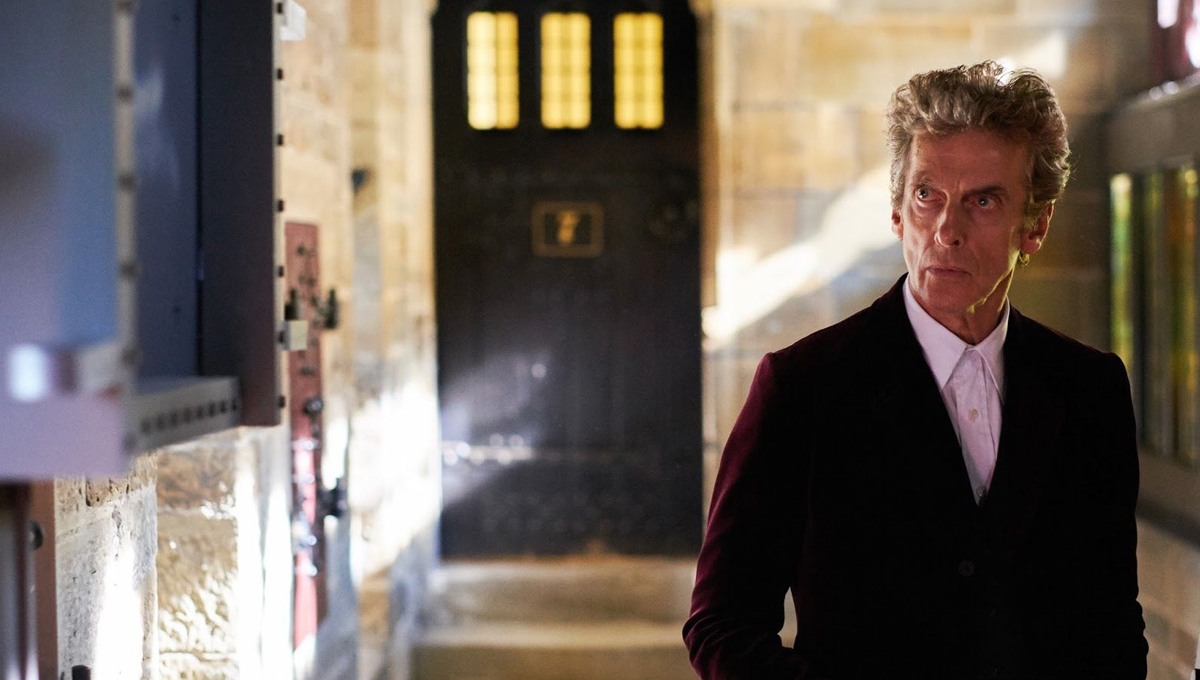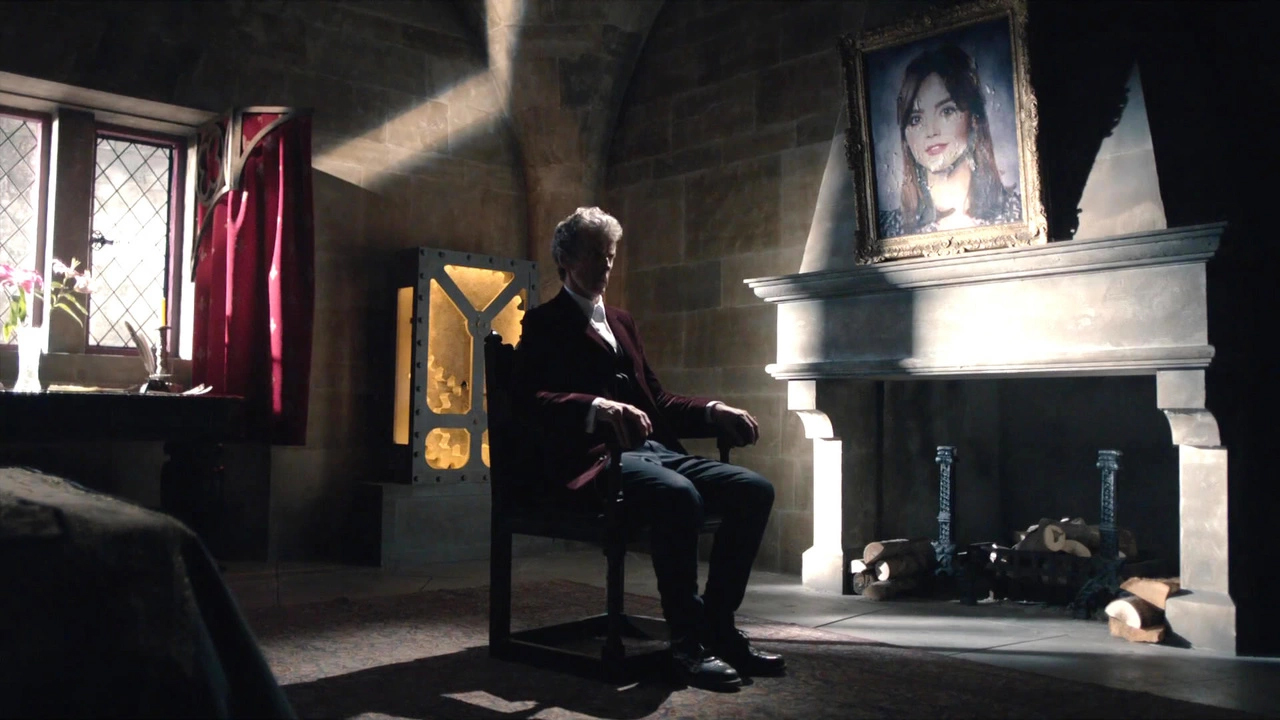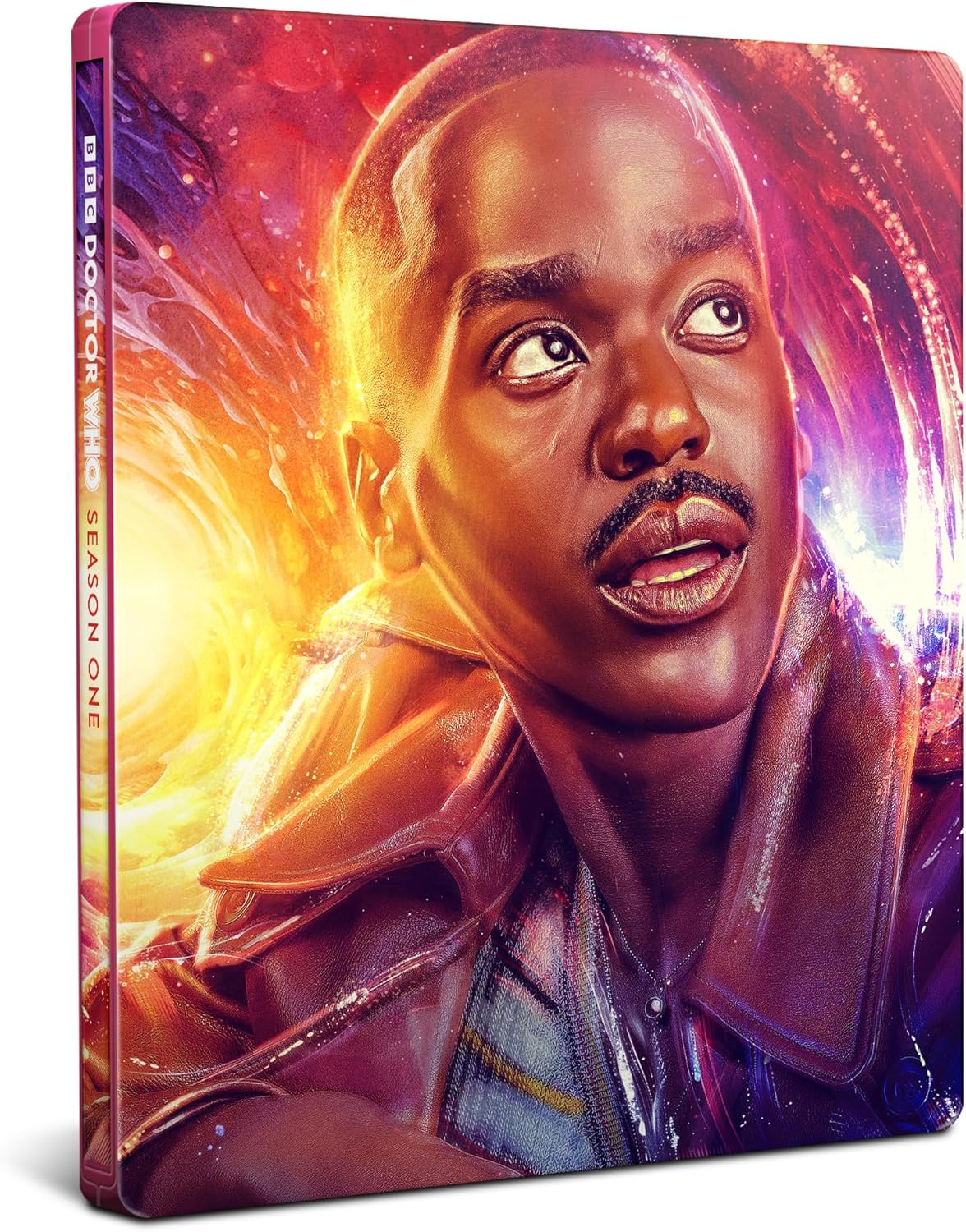The 2015 Doctor Who episode ‘Heaven Sent’ was recently voted the most popular of all time in Doctor Who Magazine‘s 60th anniversary poll. What is it about this story that makes it a real fan favourite?
The writer Steven Moffat has penned some of the most popular Doctor Who episodes of all time, as DWM‘s survey shows. In fact, six of his stories appeared in the top 10, which is staggering, and ‘Heaven Sent’ was at the top of this list with an impressive 35% of the vote. He is known for writing some of the more ‘cerebral’ Doctor Who episodes which often involve clever twists and complex solutions. In addition, his stories tend to riff on unique or unusual ideas; for example, one of his recent stories (‘Boom‘) examined what would happen if the eponymous hero spent the entire episode standing on a landmine.
And ‘Heaven Sent’ is one such unusual idea. In this particular Doctor Who episode, the Time Lord is on his own – as in, completely. Peter Capaldi is joined by no other supporting cast, apart from the silent Veil creature which stalks him throughout the story, and a fleeting appearance from his companion Clara, who appears inside his head. And so, for a full fifty minutes, the episode is just the Doctor by himself, thinking out loud.

This is because, in the previous Doctor Who episode, Clara was seemingly killed by a deadly raven, and the Doctor used a teleporter to take him to the people whom he considered responsible for her death. So the next story picks up where the previous instalment left off. The Time Lord finds himself teleported into a castle whose walls, rooms and passages have a habit of re-arranging themselves. And all the while, the Doctor is being slowly stalked by the Veil which is baying for his blood, and this creature can only stop if the Time Lord gives it a previously unspoken confession.
His end goal in this particular Doctor Who episode, though, is to find the people responsible for Clara’s death, and that means breaking his way out of the ‘prison’ in which he finds himself. And this is where things get really clever, or – to coin a phrase – ‘timey wimey.’

You see, there is a seemingly impenetrable wall which the Doctor realises he can break through if he tries hard enough. But he only has time to deliver a couple of punches before he gets fried by the Veil.
As he’s dying, he decides to burn up the rest of his body to give energy to the teleporter, as it still has a record of the Doctor in its memory banks. This Doctor then turns into dust as the ‘new’ Doctor (unaware of what has just happened) arrives at the castle for the first time. This Doctor then finds the impenetrable wall and starts to break through, then gets fried, then powers the teleport, then brings the ‘new’ Doctor into the castle. The Doctor then finds the impenetrable wall and… you get the idea.
This sequence repeats itself for billions of years, the rationale being that even a bird, if it chips away at a mountain for long enough, can make a dent in its surface. The whole ‘timey wimey’ sequence is underscored with the iconic ‘Shepherd’s Boy’ tune by Murray Gold, which instantly became a fan favourite. And the Doctor does, of course, finally manage to punch his way out of the castle… only to find himself on Gallifrey, in a dramatic twist.
And so it’s fair to say that ‘Heaven Sent’ is a very cleverly-devised Doctor Who episode, but the fact that it manages to weave such a complex yarn despite only using one location (for the most part) and one actor talking to himself for 50 minutes is impressive. Plus, it’s a very entertaining 50 minutes; this is an engaging and thought-provoking piece of television which, whilst undoubtedly tough for younger viewers to sit through, surely shows Doctor Who at its creative best. It really is a testament to the writing of Steven Moffat, and the acting of Peter Capaldi; this was a tough Doctor Who episode to pull off.
But for all its complex storytelling, ‘Heaven Sent’ is not without emotion or character. In essence, this Doctor Who episode is all about a man going through the process of grief. He has just lost his best friend, and at the very beginning of the episode, he is furious; he wants to see justice. “If you think because she is dead, I am weak, then you understand very little. If you were any part of killing her, and you’re not afraid, then you understand nothing at all. So, for your own sake, understand this. I am the Doctor. I’m coming to find you, and I will never, ever stop.”
And, indeed, he doesn’t. It is this blind fury that drives the Doctor forward, even going so far as to sacrifice himself in order to power the teleport. As it transpires in the next episode, he knew all along that the Time Lords were behind everything; he knew that, if he held out long enough, he could break free of the castle and force his own people to bring Clara back from the dead. And when he said he would “never, ever stop,” he meant it; the Doctor holds out for four and half billion years.
And it’s his memory of Clara which gives him the strength to keep going. Jenna Coleman provides the only other dialogue in this Doctor Who episode, and in a brief scene which takes place in the Doctor’s head, she says to him: “Doctor, you are not the only person who ever lost someone. It’s the story of everybody. Get over it. Beat it. Break free.” Never before has a Doctor Who episode approached a subject as delicate as grief with such boldness.
So whilst ‘Heaven Sent’ is far from the happiest of Doctor Who episodes, it is guaranteed to make you think. And whatever your opinion of it, there is no denying its ambition and originality. There really is nothing else like it.
What do you love most about ‘Heaven Sent’? And do you think it deserves its place at the top of the episode poll? Let us know in the comments below.










Leave a Reply